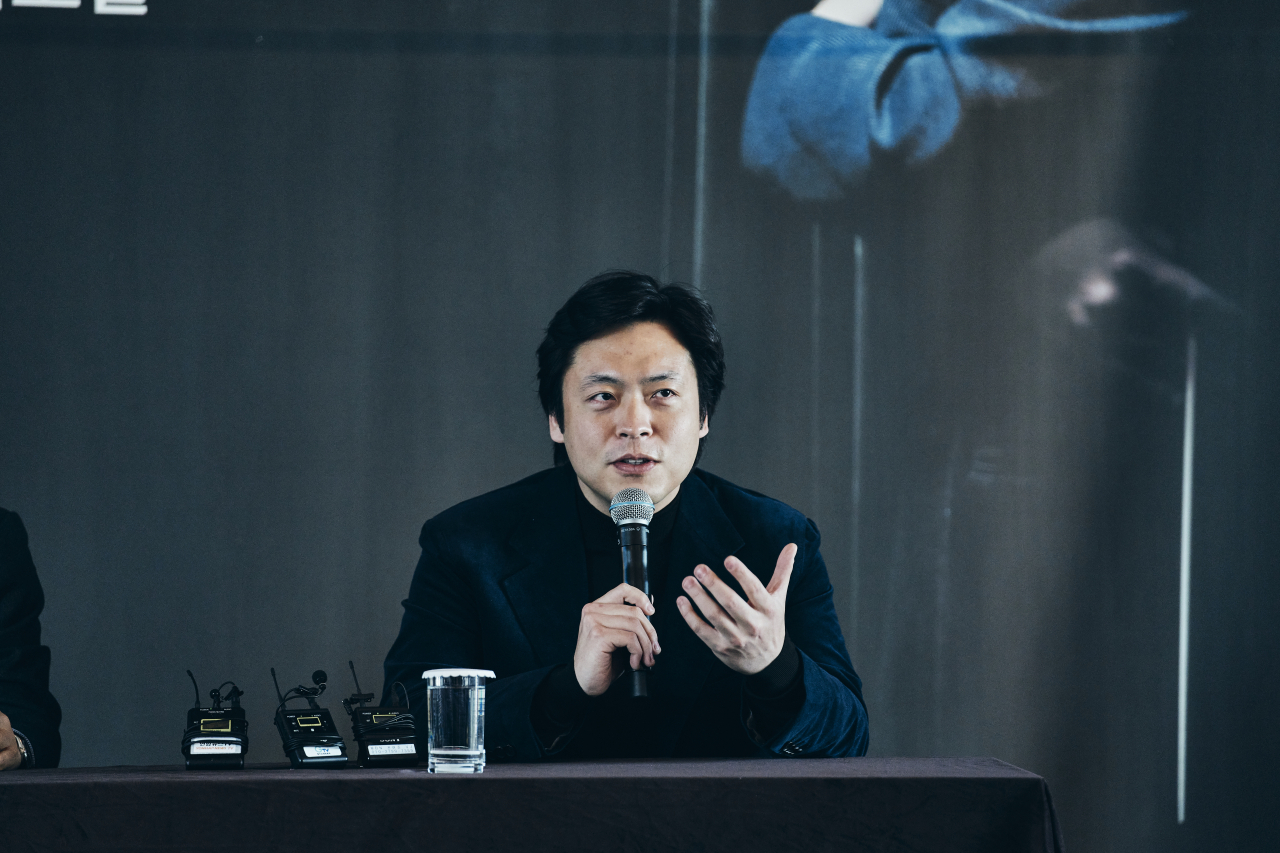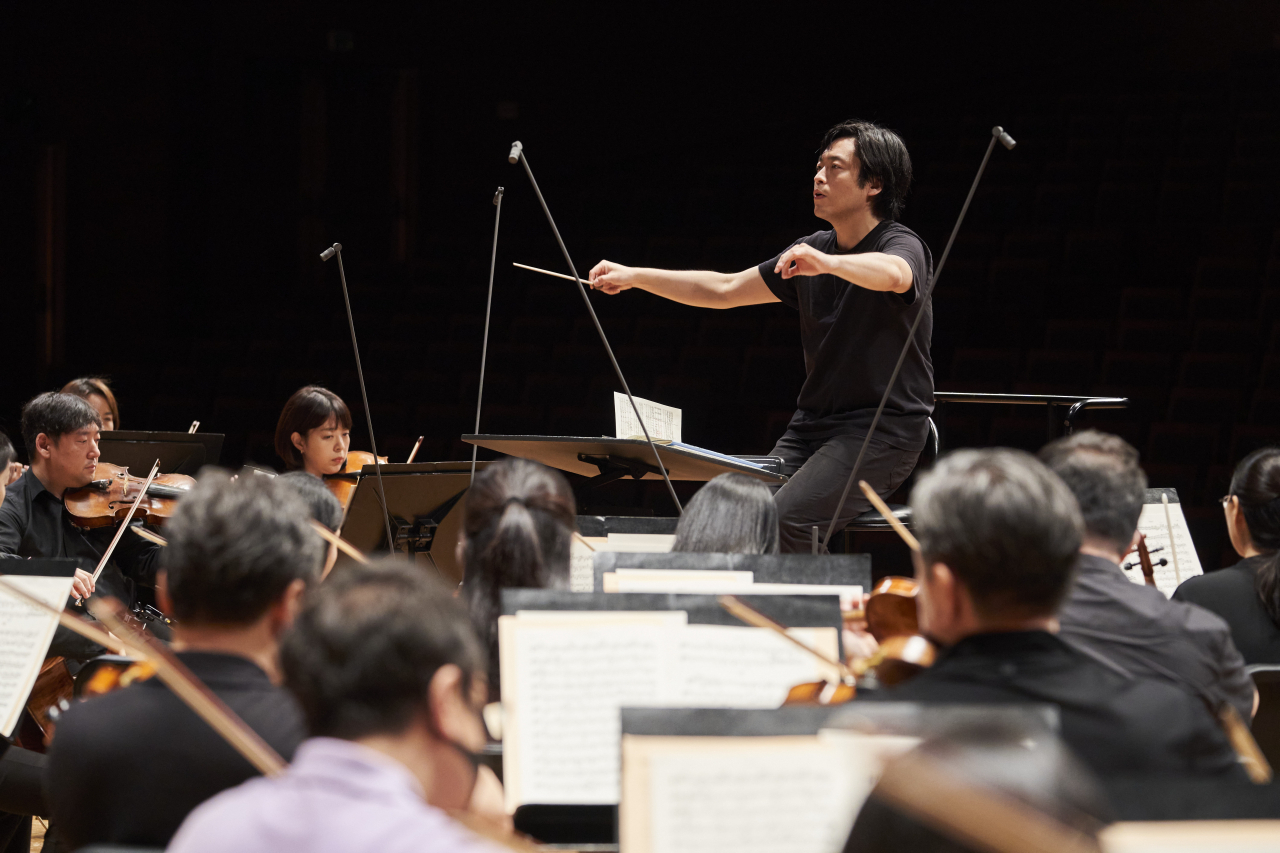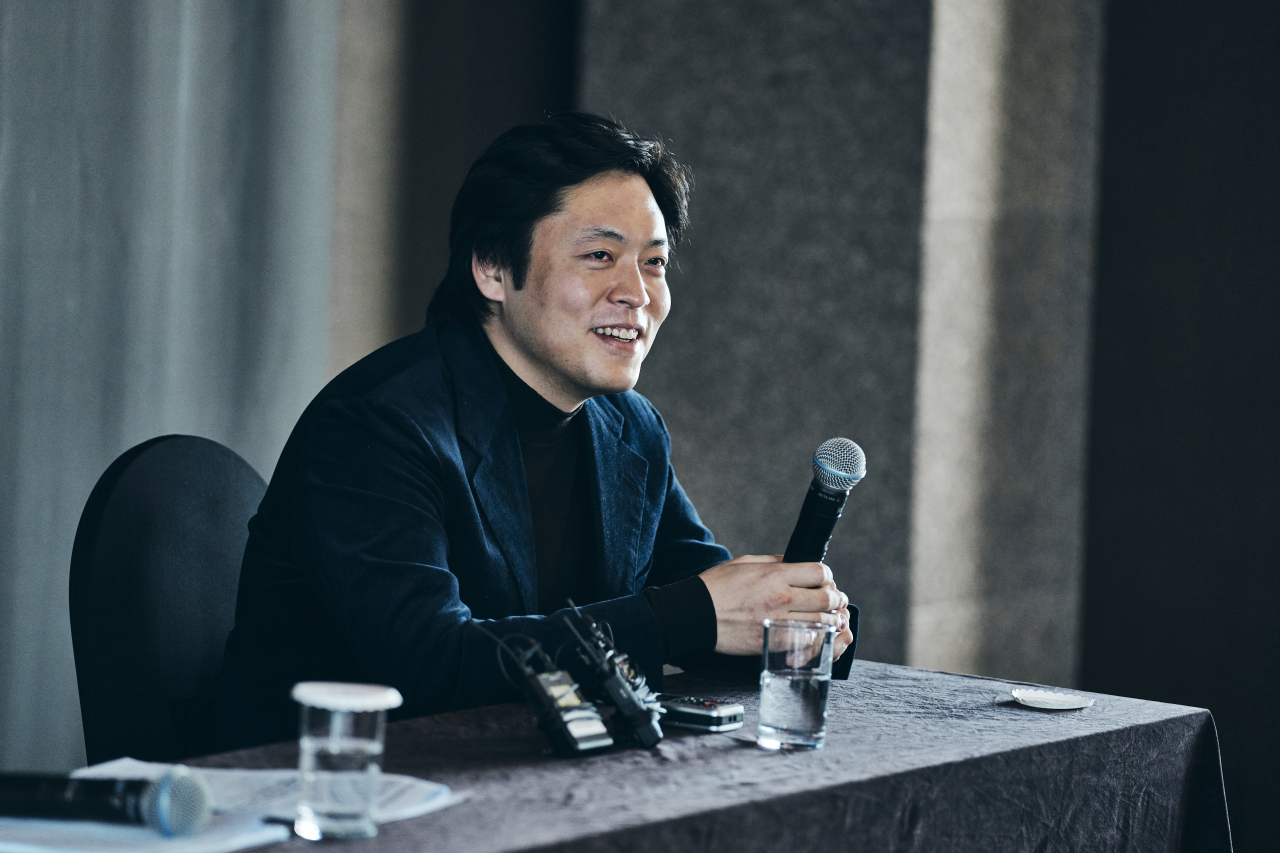Pianist-conductor Kim Sun-wook looks to grow together with Gyeonggi Philharmonic
By Park Ga-youngPublished : Jan. 8, 2024 - 19:43

Pianist Kim Sun-wook spoke calmly during a press conference on Monday to mark his inauguration as the artistic director of the Gyeonggi Philharmonic Orchestra, one of South Korea’s top five, but his words were full of confidence and expectations.
The Gyeonggi Philharmonic Orchestra appointed the 35-year-old pianist and conductor to fill a post that had remained empty for one year. Kim began his two-year tenure this month, with the New Year’s event on Friday to mark his first official concert as the artistic director.
Kim, who became the first Asian and youngest winner of the Leeds International Piano Competition in 2006, made his official debut as a conductor with the KBS Symphony Orchestra in December 2020.
“I might not have experience as an assistant conductor, but throughout many collaborations in the past decade, I have accumulated many experiences, which helped me a lot,” Kim told reporters during a press conference Monday at The Plaza Hotel in Seoul. “Everyone has a beginning, without which there is no progress. I don’t want to emphasize the beginning because what I value is consistent growth and continuation. You can look forward to it.”

In the past three years, Kim said he has focused on his conducting opportunities while narrowing his piano repertoire to about seven composers.
Seo Choon-ki, president of Gyeonggi Arts Center, said that Kim, who has taken the stage with the orchestra as a guest conductor a few times last year, possesses great potential, communication skills, the ability to interpret music, as well as a captivating personality and charisma.
“Once Kim has the platform to showcase, we believe it would be a great chance to grow together,” Seo noted.
Kim called the Gyeonggi Province-based orchestra as a “formidable orchestra,” pointing to their fast learning speed and passion.
As the artistic director, he will try his best to bring the orchestra to a broader audience outside South Korea, he said.
“I want to make our performances available online and invite renowned international musicians to collaborate with the orchestra so that they can spread the word. I am no longer just a pianist, and there will always be the Gyeonggi Phil’s artistic director title,” Kim said.
As part of those efforts, he invited top-class musicians “who touched his heart” with their music, including violinist Rainer Honeck, pianist Vadym Kholodenko, clarinetist Pascal Moragues and violinist Marc Bouchkov.
For Kholodenko and Moragues, it will be their first concert with a Korean orchestra, while Bouchkov will make his Korean debut.

For his first concert as artistic director, Kim will take the stage with the Gyeonggi Philharmonic Orchestra for its New Year's concert at the Gyeonggi Arts Center on Friday. The concert will present Mozart's "The Marriage of Figaro" and Scriabin's Piano Concerto together with pianist Paik Kun-woo. The second part of the concert will present Brahms' Symphony No. 1.
Kim stated that while his current focus is on his role as the artistic director, playing the piano remains an essential part of his identity. "I can never stop playing the piano. Despite experiencing a cathartic moment after conducting a concert, there's a profound sense of emptiness because I didn't physically generate my own sound. To fill that void, the piano is indispensable, whether I'm playing it in solitude or on stage."










![[Hello India] Hyundai Motor vows to boost 'clean mobility' in India](http://res.heraldm.com/phpwas/restmb_idxmake.php?idx=644&simg=/content/image/2024/04/25/20240425050672_0.jpg&u=)








